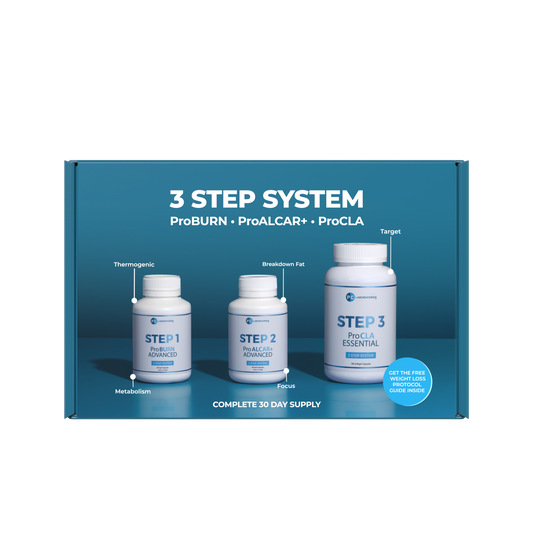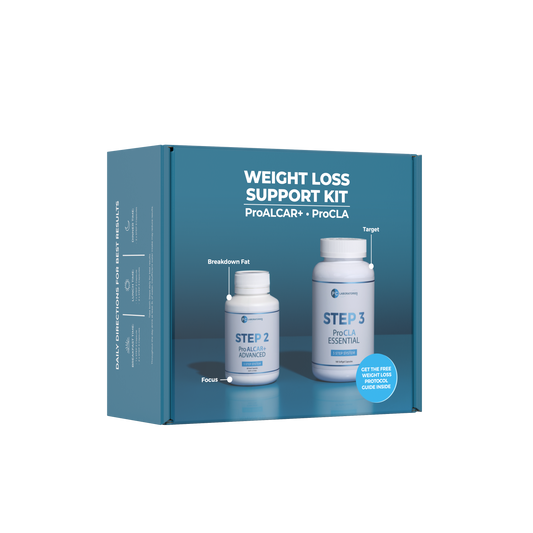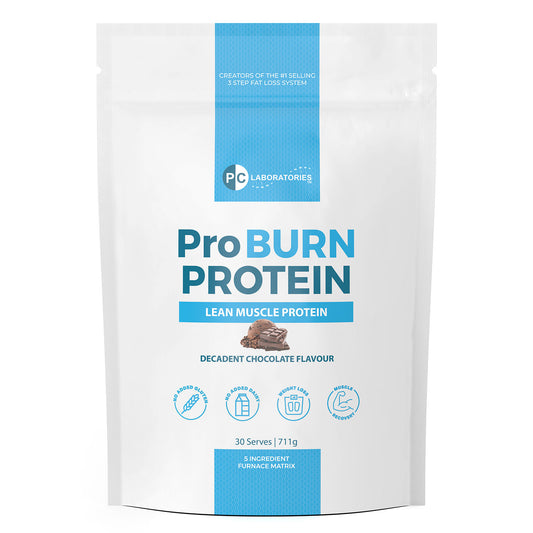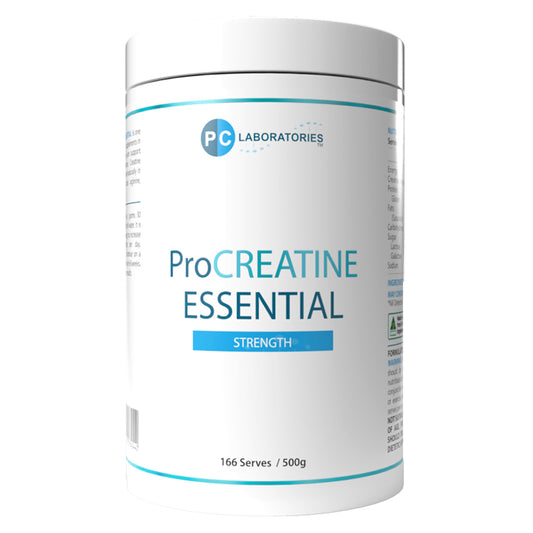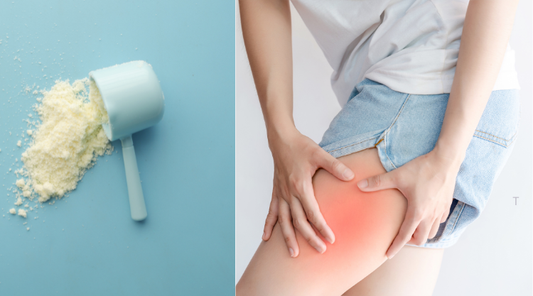For a seasoned athlete or someone who enjoys an occasional workout, muscle recovery is crucial for maintaining performance. If you neglect proper recovery, this can quickly lead to muscle wastage, where your hard work goes to waste. It’s a common issue that plagues progress, so what can you do about it?
The key to healthy muscle growth is to take a multifactorial approach. Taking one supplement will never be enough to make significant progress with recovery. If you’re not factoring in your dietary intake, rest periods and hydration, then you’re missing big pieces of the puzzle.
Are you feeling increased soreness and prolonged fatigue? In this guide, we'll explore the science behind muscle recovery, effective recovery methods, and how certain supplements can aid in the process.
What Happens When We Don’t Recover Well?
When you engage in intense physical activity, your muscles undergo microscopic damage. This is a normal part of the muscle-building process. However, without adequate recovery, several issues can arise:
- Muscle Wastage (Atrophy): Without proper rest and nutrition, muscles begin to break down faster than they rebuild, leading to muscle loss. The body needs quick nutrition to fuel the nervous system, as this is the constant top priority. It will break down whatever tissue is convenient for energy.
- Increased Soreness: Delayed Onset Muscle Soreness (DOMS) can become more pronounced, lasting longer than usual. This is that feeling when you’re struggling to walk up the stairs post leg day.
- Fatigue: Inadequate recovery leads to persistent tiredness, affecting performance in subsequent workouts. This isn’t normal fatigue that can be fixed with a night’s sleep, it’s heavier and generally chronic.
- Increased Injury Risk: Overtraining without sufficient recovery weakens muscles, tendons and joints, making them more susceptible to injuries. This can present as muscle tears, tendonitis, torn ligaments or subluxation of joints.
Popular Methods For Recovery Management
1. Active Recovery- Engaging in low-intensity exercises like walking, swimming, or cycling can help maintain blood flow and oxygen to the muscles. This aids in the removal of metabolic waste products and delivers nutrients necessary for repair.
2. Sleep- Quality sleep is vital for muscle recovery. During deep sleep stages, the body releases growth hormones that facilitate tissue repair and muscle growth.
3. Hydration- Proper hydration ensures that nutrients are transported efficiently to muscle cells and helps in the removal of toxins. Aim to drink water consistently throughout the day, not just during workouts. Aim for 3-4 L of water daily for females, and 4-5 L daily for men.
4. Nutrition- Consuming a balanced diet rich in proteins, carbohydrates, and healthy fats provides the necessary building blocks for muscle repair. Post-workout meals should ideally include a combination of protein and carbohydrates to replenish glycogen stores and initiate muscle repair.
5. Massage and Foam Rolling- Techniques like massage and foam rolling can help alleviate muscle tightness and improve blood circulation.
Cellular Mechanisms Behind Muscle Recovery
On a cellular level, muscle recovery involves several processes:
- Protein Synthesis: After exercise, muscle fibres repair and grow through protein synthesis. Supplements like glutamine and creatine support this process.
- Inflammation Reduction: Intense exercise induces inflammation. Beta-alanine and creatine have anti-inflammatory effects, aiding in recovery.
- Nutrient Transport: Proper hydration and supplementation ensure that nutrients reach muscle cells efficiently, promoting repair and growth. This is supported by restorative sleep and hydration.
- Hormonal Support: Sleep and nutrition influence hormone levels, such as growth hormone, which plays a crucial role in muscle repair.
Supplements for Muscle Recovery
While a balanced diet and proper recovery techniques are essential, certain supplements can further enhance the recovery process. Let's delve into some of the most researched supplements:
1. Glutamine
Glutamine is an amino acid that plays a pivotal role in muscle recovery and immune function. After intense exercise, glutamine levels can deplete, potentially compromising the immune system and hindering muscle repair. Supplementing with glutamine may help maintain these levels, supporting recovery and reducing the risk of overtraining syndrome. We love ProGlutamine Essential powder.
2. Collagen
Collagen is a protein that contributes to the structural integrity of muscles, tendons, and ligaments. Supplementing with collagen has been shown to support joint health and may aid in the repair of connective tissues, reducing the risk of injuries and promoting overall musculoskeletal health. ProBURN Protein has collagen plus other fat-burning ingredients, so it's ideal for your morning routine.
3. Beta-Alanine
Beta-alanine is a non-essential amino acid that, when combined with histidine, forms carnosine. Carnosine acts as a buffer against acid accumulation in muscles during high-intensity exercise, delaying fatigue and improving performance. Supplementing with beta-alanine, like ProBETA-ALANINE Essential, can increase muscle carnosine levels, enhancing endurance and reducing the perception of fatigue during intense workouts.
4. Creatine
Creatine is a compound found naturally in muscle cells and is used to produce energy during high-intensity exercise. Supplementing with creatine increases phosphocreatine stores in muscles, allowing for more ATP production. Additionally, creatine has been shown to support muscle recovery by reducing inflammation and muscle damage following intense exercise. ProCreatine Essential is pure and very effective.
How Will You Feel Taking These Supplements?
When incorporating these supplements into your routine, the experience depends slightly on the individual. Generally, you can expect:
- Reduced Muscle Soreness: Supplements like beta-alanine, glutamine, and creatine can help decrease the severity of DOMS. Glutamine and creatine are daily supports for muscle maintenance and growth.
- Increased Energy Levels: Creatine supplementation can enhance energy production, leading to improved resilience. This improves performance in activities like sprinting and weightlifting.
- Enhanced Recovery: Glutamine and collagen support muscle repair and immune function, facilitating quicker recovery times. They have other benefits, of supporting immunity and digestive function. Collagen supplementation can alleviate joint discomfort and support connective tissue health.
- Improved Performance: Beta-alanine can delay fatigue, allowing for more intense and prolonged workouts. This is the supplement that gives you the skin tingles, but it’s also worth it for the results!
How To Be Effective With Therapeutic Dosage
It's essential to adhere to recommended dosages to ensure safety and efficacy. This is a general guide:
> Glutamine: 5–10 grams per day, especially during periods of intense training.
> Collagen: 10-20 grams per day, typically in the form of hydrolysed collagen peptides.
> Beta-Alanine: 2–6 grams per day, divided into multiple doses to minimise the risk of tingling sensations.
> Creatine: 3–5 grams per day, with or without a loading phase.
Always consult with a healthcare professional before starting any new supplement regimen, especially if you have underlying health conditions or are taking other medications.
Who Are These Supplements For?
These supplements are particularly beneficial for:
1. Athletes: Those engaged in high-intensity or endurance sports can experience enhanced performance and quicker recovery.
2. Older Adults: As muscle mass naturally declines with age, supplements like creatine and collagen can help maintain muscle function and reduce the risk of falls.
3. Individuals Recovering from Injury: Supplements can support tissue repair and reduce recovery time.
4. Fitness Enthusiasts: Regular exercisers looking to improve performance and reduce soreness can benefit from these supplements.
The Final Thought
Proper muscle recovery is essential for maintaining performance, preventing injury, and promoting overall health. It's true that proper rest, hydration, and nutrition form the foundation of recovery. It is also true that supplements like glutamine, collagen, beta-alanine, and creatine can provide additional support.
By understanding the science behind these supplements and incorporating them appropriately, we can enhance the recovery process and continue to perform at our best. In a culture where a lot of us push our limits, downtime can feel counterproductive. Yet this rest and recovery period is when the body restores itself, and real progress occurs.
References
Bello, A. E., & Oesser, S. (2006). Collagen hydrolysate for the treatment of osteoarthritis and other joint disorders: A review of the literature. Current Medical Research and Opinion, 22(11), 2221–2232. https://doi.org/10.1185/030079906X148373
Clark, K. L., Sebastianelli, W., Flechsenhar, K. R., & Aukerman, M. (2008). Oral supplementation with specific collagen peptides improves knee joint comfort and function in athletes with activity-related knee pain. Current Medical Research and Opinion, 24(5), 1485–1496. https://doi.org/10.1185/030079908X291967
Cooke, W. H., & O'Conner, M. (2009). Creatine supplementation and its effects on recovery from exercise-induced muscle damage. Journal of Strength and Conditioning Research, 23(4), 1185–1192. https://doi.org/10.1519/JSC.0b013e3181a0a1b4
Harris, R. C., Tallis, J., & Howard, R. (2012). Beta-alanine supplementation and exercise performance: A systematic review and meta-analysis. Journal of Strength and Conditioning Research, 26(11), 3145–3157. https://doi.org/10.1519/JSC.0b013e31824f3b2b


